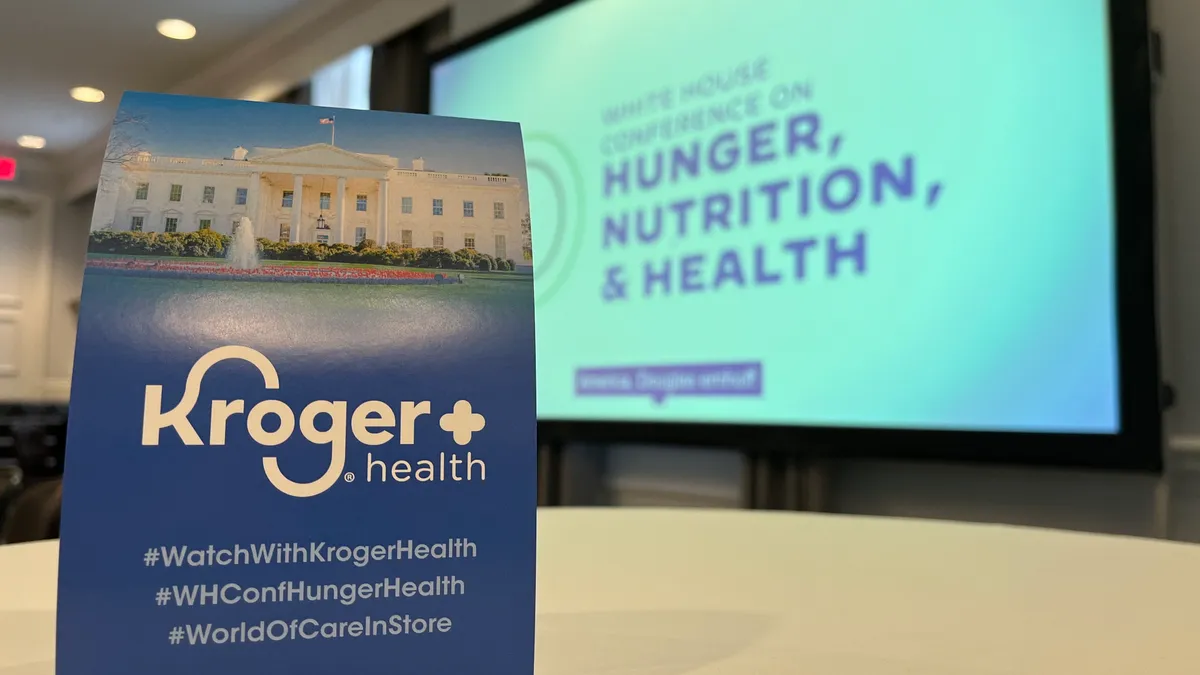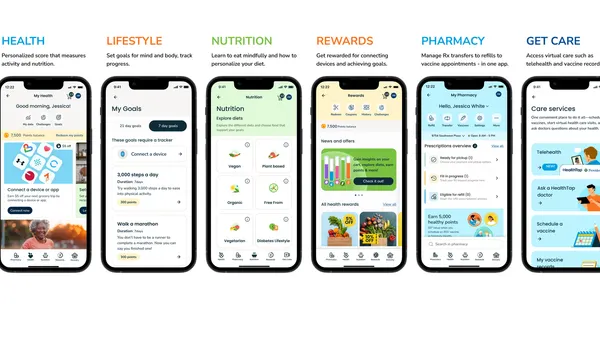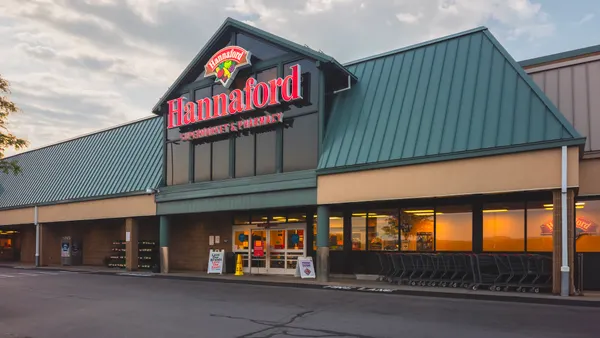As the historic White House Conference on Hunger, Nutrition and Health convened on Wednesday, Kroger, as the largest supermarket chain in the U.S., took advantage of the opportunity to bolster its presence in the food-as-medicine space.
At a watch party hosted by Kroger Health, the health solutions arm of the grocery company, leaders within the division highlighted its existing efforts and new commitments to help address the conference’s focus on fixing the country’s healthcare system and access to nutrition.
“We’ve been working on food as medicine for quite some time, really trying to prove out the value — not only the value to the consumer but the value back to the healthcare system,” said Kroger Health President Colleen Lindholz.
Kroger is helping to stand up a national Food is Medicine Research Initiative with the Rockefeller Foundation and American Heart Association (AHA), the White House announced Wednesday. The company is part of a $250 million commitment tied to the initiative, which is set to launch in spring 2023 with the aim of creating tools and evidence to scale “food is medicine” programs.
The Rockefeller Foundation and AHA reached out Kroger to ask the company to be one of its two inaugural partners on the research endeavor, Lindholz said in an interview, noting the other partner is Kaiser Permanente.
Lindholz said Kroger will contribute to the financial commitment but wasn’t able to share the exact amount.
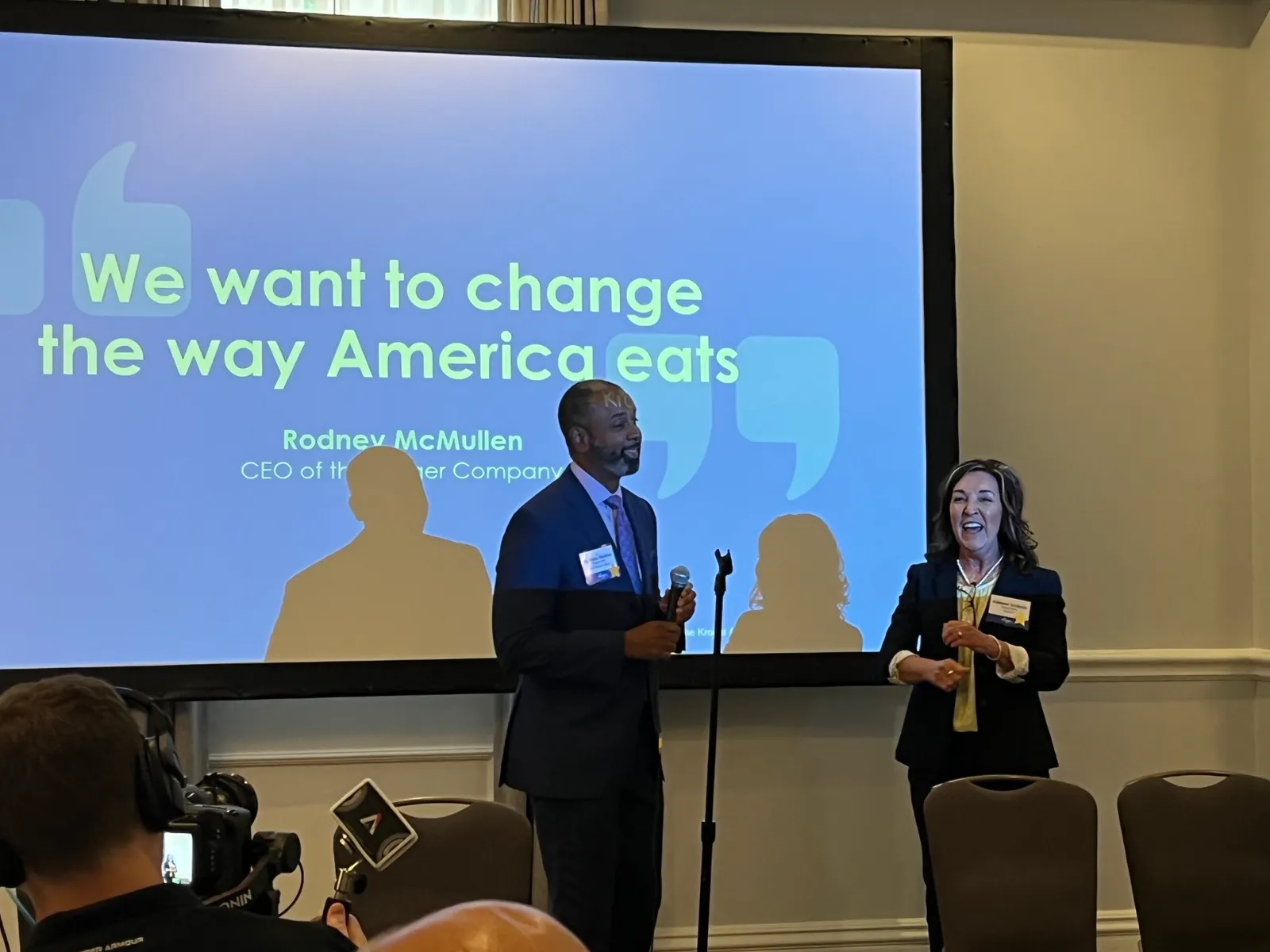
The research initiative aims to improve “both health and health equity and reduce overall health care costs” related to food is medicine programs. Part of that will include increasing public understanding of what “food is medicine” means and how those programs function within the healthcare system, per the announcement. The initiative’s work will include patients and leaders in government, academia, health care, industry, and community-based organizations.
Separately, Kroger has made commitments to the White House involving funding through Kroger’s Innovation Fund, which aims to support solutions for food security and waste prevention, and research in areas such as better-for-you offerings and ending hunger, Lindholz said.
At the watch party, Kroger Health teased a handful of upcoming partnerships focused on nutrition security and dietitian tools. Those announcements are forthcoming, spokespeople for Kroger Health noted.
Kroger Health representatives also spotlighted its OptUp nutritional ratings, recent research and how the division is connecting 22,000 healthcare professionals with associates and customers to deliver personalized service and build trust. Lindholz pointed to a study by Kroger and the University of Cincinnati that was published earlier this year looking at the impact of retail-based dietary interventions.
Major grocery players make pledges
Along with Kroger, other major grocers along with tech firms and trade groups announced commitments tied to the White House’s conference.
Meijer said all of its supercenters, neighborhood markets and Express stores will start offering discounts — like $5 to $10 off and 5% to 10% off — on produce for SNAP customers beginning later this fall. The retailer said the USDA granted it a waiver to offer the discounts. The first promotional period will run from Oct. 2-31 with 10% off fresh fruits and vegetables.
Hy-Vee pledged to deliver 30 million meals to vulnerable communities by 2025 and by the following year to deploy its in-store dietitians in “areas of low food access” to educate people about nutrition and healthy food.
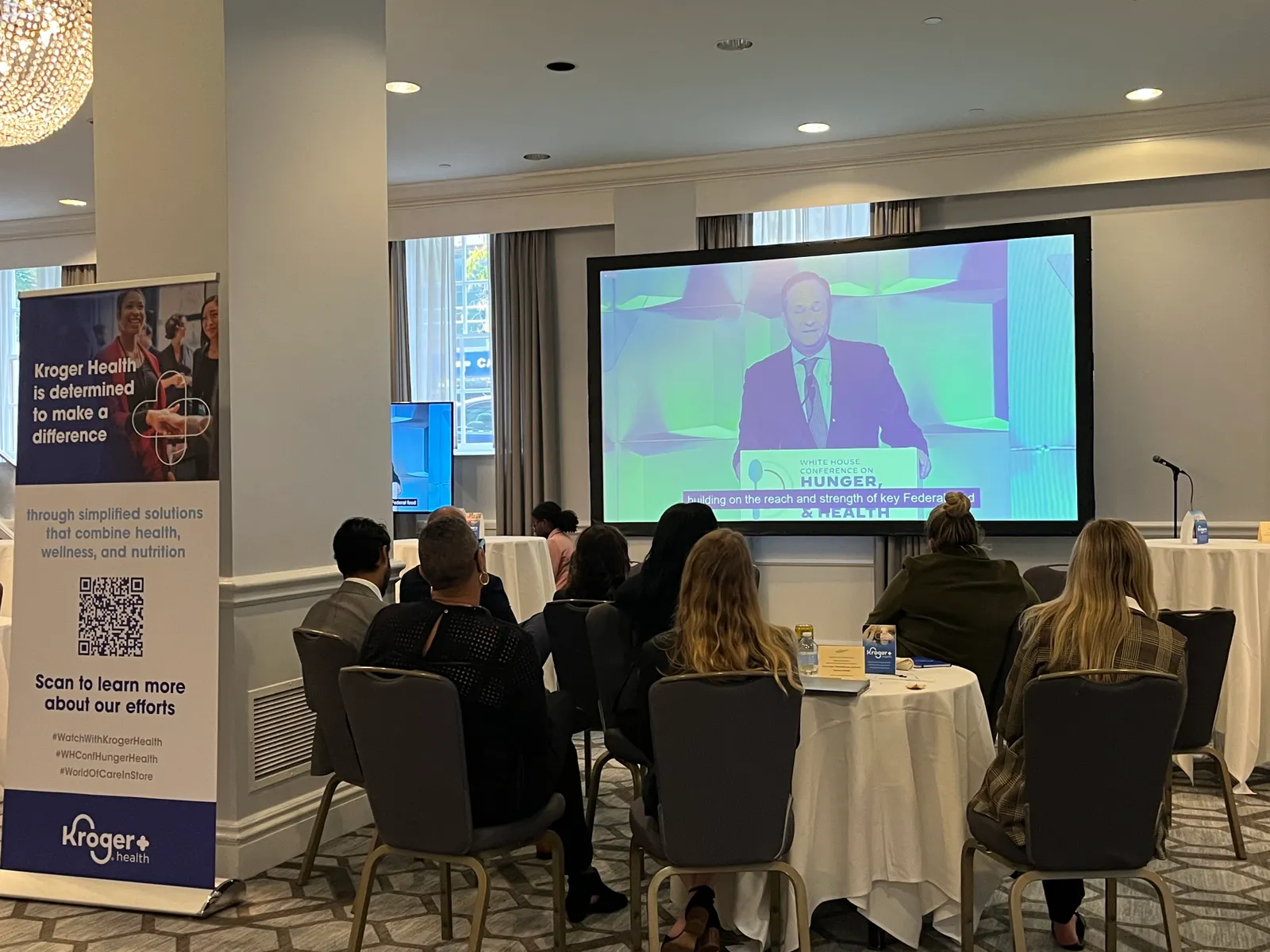
Albertsons said it will help 50,000 people enroll in SNAP and WIC benefits next year and by 2024 will provide 50 million “evidence-based suggestions for improving nutrition to its online customers.” The following year, the grocery company will debut 1,000 nutritious recipes and launch six “health campaigns” to educate consumers online and in-store about federal nutrition guidelines.
DoorDash announced efforts to improve transportation barriers to food in 18 cities, while Instacart unveiled an extensive health-focused initiative including new digital tools for consumers and healthcare providers and a health policy agenda. Target-owned Shipt announced several new steps to combat food insecurity and improve access to nutritious foods, including creating a small retailer accelerator and updating its marketplace to make meal planning easier for customers with specific dietary needs.
The two main trade groups for grocers, The Food Industry Association and the National Grocers Association, also unveiled several areas they aim to address, with expanding SNAP online purchasing as a shared focus.
FMI also said food bank donations, online purchasing for WIC recipients and consumer education on healthy foods are priorities, noting it will use internal benchmarking and annual reporting, while NGA said it will work to expand access to full-service grocery stores, including creating a toolkit to help its members do so in USDA-designated food deserts.



